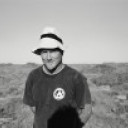Botany Nerds Ahoy


indo-dreaming wrote:AlfredWallace wrote:goofyfoot wrote:basesix wrote:welcome back AW. Now, who here hates agapanthus?
The Portsea rose!
Hi Goofyfoot. So true. Better alternatives using Australian species. Geez I wish there was an italics button on here, hate writing scientific names in normal font.
Alas, some alternatives are our native iris.
Patersonia occidentalis , Orthrosanthus multiflorus , Libertia sp. , Diplarrhena moraea, Dietes robinsoniana from Lord Howe Island, (phylogenetic connections to Africas Dietes sp., ).
I’ve used all those plant’s except the species from LHIsland.
We don’t need to use Agapanthus at all. AW.There you go i learnt something today, I didn't know there was a Dietes sp native to Australia even if lord Howe Island.
I knew the others like D. bicolor and D. gradiflora where from South Africa, even if they look like they are natives.
IMHO very useful plants tough as nails and dont get as ratty looking as some natives like Lomandra or Dianella sp
Ive never been to Lord Howe Island but its always a place thats fascinated me not just for its landscape but its amazing how unique the flora and flora is for such a small island, it even has four native palm species not found anywhere else naturally, all grow great in Vic too. (but slow)
Few good waves and amazing fishing too.
Indo-dreaming. So true. Not forgetting one of the most popular palms globally, Howea forsteriana Kentia Palm, nearly everyone has one, tough and the locals have a great nursery set up where they are exporting them to the mainland or other locations. They can’t grow them quick enough. Bird life on LHI is special also.AW


Yep Howea forsteriana Kentia the most common and actually a very nice palm once they start trunking especially if grown in more shaded area so trunk stays green, apparently they are everywhere on the island except very high elevations
The other three are Howea belmoreana the second most common on the island and in cultivation apparently also grows from sea level
Then Hedyscepe canterburyana which apparently grows at about 400metres altitude upwards.
Then when you get right to the top the most rare Leppidorrachis mooreana grows in basically a cloud forrest.
I have the first three in my garden, last is the most rare and hardest to grow. (only a handful grown in Aust private gardens as hard to get and dont survive in warmer climates )
Place looks insane like its out of Jurasic park or something even for someone not into palms but with an interest in the island, this thread has some amazing pics, really gives you a feel for the island, id love to go there get a wave, do some fishing and do the trek to the top of Mt Gower (seems the one all the palm nuts do)
https://www.palmtalk.org/forum/topic/61967-exploring-lord-howe-island/


blackers wrote:Good work seeds, this conversation has clearly got legs.
And thanks or the call-out Basesix, however I raise you your Bamboos for mine.Btw bamboo is a bastard of a plant when it escapes. Keep it in pots or burn it.
Ah, the real Bamboos!
Yep, like blackers says, keep it in pots.


I'll put Singapore daisy and African bush daisy up against Bamboo any day for invasive weeds.


Asparagus fern.


camphor laurel, cocos palms...




this side of the range? i'll take the above any day over the vine weeds. madeira & cats claw. poor rivers have no chance. not good.


yeah, cat's claw is pretty bad in places here. Sad. Who is ever going to control that


GreenJam wrote:timely article
https://www.abc.net.au/news/rural/2023-07-31/ebay-facebook-marketplace-s...
Good read ginger species like those pictured Hedychium gardnerianum and Hedychium coronarium are super weedy in warm climates like QLD and there are much better gingers species to grow up there but down here in Vic they aren't weedy and about the only gingers we can grow.
Also have a really nice scent especially on a hot still summer night
Im not much of a flower person but Heliconias and ginger species are right up my alley, i always think of them as flowers for men.






freeride76 wrote:
Freeride76. Hi mate. Pultenaea sp. ,Dillwynia sp. ,Bossaea sp. , Aotus sp. ?
AW.


AlfredWallace wrote:freeride76 wrote:
Freeride76. Hi mate. Pultenaea sp. ,Dillwynia sp. ,Bossaea sp. , Aotus sp. ?
AW.
Freeride76. I’m thinking Dillwynia sp. AW.


I think you are right AW.
Growing on some dwarf banksia dominated heath fringing a melaleuca wetland.
v. biodiverse little area.


indo-dreaming wrote:Yep Howea forsteriana Kentia the most common and actually a very nice palm once they start trunking especially if grown in more shaded area so trunk stays green, apparently they are everywhere on the island except very high elevations
The other three are Howea belmoreana the second most common on the island and in cultivation apparently also grows from sea level
Then Hedyscepe canterburyana which apparently grows at about 400metres altitude upwards.
Then when you get right to the top the most rare Leppidorrachis mooreana grows in basically a cloud forrest.
I have the first three in my garden, last is the most rare and hardest to grow. (only a handful grown in Aust private gardens as hard to get and dont survive in warmer climates )
Place looks insane like its out of Jurasic park or something even for someone not into palms but with an interest in the island, this thread has some amazing pics, really gives you a feel for the island, id love to go there get a wave, do some fishing and do the trek to the top of Mt Gower (seems the one all the palm nuts do)
https://www.palmtalk.org/forum/topic/61967-exploring-lord-howe-island/
Indo-Dreaming. Hi. Just for fun, I’m bestowing upon you the Palme d’Or (Golden Palm) for your love and knowledge of palms. Good stuff.
That cloud forest on top of Mt.Gower, Lord Howe Island is spectacular. I watched a documentary about it awhile back, a completely unique world of its own. Don’t you love the biological world.
When you worked in nurseries in the tropics. Did you or the organisation who employed you grow our native Wodyetia bifurcata the Foxtail Palm ?
Very popular here in OZ and is much sought after globally especially in the America’s and other warm climes. AW.


freeride76 wrote:I think you are right AW.
Growing on some dwarf banksia dominated heath fringing a melaleuca wetland.
v. biodiverse little area.
Freeride76. How nice, sounds like a great little pocket of biodiversity.
Saddens me these days when we often refer to remnant or pocket populations, goes to show how much land clearing has occurred in the past and still occurring unabated today.
Australia has now officially cleared more than half of its original vegetation.
We are not that smart really.AW.


No.
Anyway for good news, most of Lennox Point which was cleared for cattle has been replanted and there's now lots of beautiful littoral rainforest veg there.
Had a wonderful noisy pitta sighting this morning- he was scrabbling around under a cotton wood canopy in the leaves.
Beautiful colours.
There's one ( pair?) quite close to the house which I hear call every day right on sunset but I've never spotted him.


freeride76 wrote:No.
Anyway for good news, most of Lennox Point which was cleared for cattle has been replanted and there's now lots of beautiful littoral rainforest veg there.Had a wonderful noisy pitta sighting this morning- he was scrabbling around under a cotton wood canopy in the leaves.
Beautiful colours.
There's one ( pair?) quite close to the house which I hear call every day right on sunset but I've never spotted him.
Freeride76. Well that’s great to hear about Lennox, been a decade or more since I last had a surf there., cool place to live I imagine, the hinterland appears as though it’s got some hidden gems and biological treasures.
I’ve got Pitta envy that’s for sure, a very crepuscular bird and not easily observed. AW.




udo wrote:https://www.abc.net.au/news/2023-08-01/desert-kurrajong-compass-water-tr...
Udo. Great article, thanks for posting it. Most of Australia’s plants have adaptations to their prevalent conditions. The water retention in Kurrajongs is one of them.
On the topic of ‘bush compass’, two groups I’ve experienced come to mind.
Australian members of the Proteaceae family such as, Grevillea sp. , Hakea sp. , Telopea sp. , Banksia sp. etc.
Other groups such as members of the Asphodelaceae family and Dasypogonaceae family, well known grass trees.
Xanthorrhoea sp. (pan Aust.) and Kingia australis. (West Aust. endemic).
If in West Oz, check out Waychinicup National Park near Albany, you’ve never seen any like it , masses of Kingia australis standing like erect sentinels over and around a deep ocean connected lagoon frequented by dolphins. Spectacular.
Both of these groups when in flower can point you in the direction of North in the Southern Hemisphere.
In most cases flowering appears first on the northern side of the plants and on the flowering (inflorescence) stalk of the grass trees, even though with Kingia australis it has a very short inflorescence. AW.


AlfredWallace wrote:indo-dreaming wrote:Yep Howea forsteriana Kentia the most common and actually a very nice palm once they start trunking especially if grown in more shaded area so trunk stays green, apparently they are everywhere on the island except very high elevations
The other three are Howea belmoreana the second most common on the island and in cultivation apparently also grows from sea level
Then Hedyscepe canterburyana which apparently grows at about 400metres altitude upwards.
Then when you get right to the top the most rare Leppidorrachis mooreana grows in basically a cloud forrest.
I have the first three in my garden, last is the most rare and hardest to grow. (only a handful grown in Aust private gardens as hard to get and dont survive in warmer climates )
Place looks insane like its out of Jurasic park or something even for someone not into palms but with an interest in the island, this thread has some amazing pics, really gives you a feel for the island, id love to go there get a wave, do some fishing and do the trek to the top of Mt Gower (seems the one all the palm nuts do)
https://www.palmtalk.org/forum/topic/61967-exploring-lord-howe-island/
Indo-Dreaming. Hi. Just for fun, I’m bestowing upon you the Palme d’Or (Golden Palm) for your love and knowledge of palms. Good stuff.
That cloud forest on top of Mt.Gower, Lord Howe Island is spectacular. I watched a documentary about it awhile back, a completely unique world of its own. Don’t you love the biological world.
When you worked in nurseries in the tropics. Did you or the organisation who employed you grow our native Wodyetia bifurcata the Foxtail Palm ?
Very popular here in OZ and is much sought after globally especially in the America’s and other warm climes. AW.
Ha ha thanks my knowledge is a bit rusty but yeah i use to be pretty into it, there is actually quite a few rare palm collectors that are also keen surfers even here in OZ but even more so in California and Hawaii.
Regarding Foxtails yeah we grow foxtails at the landscape nursery, even by that time about 20 year's ago they were already pretty common and fairly cheap though, even in Indonesia they are common these days.
I don't know if your familiar with the history but there was actually a time when they were rare in cultivation but highly sought after and there was a crazy illegal trade.
"In the early 1990’s Fauna Squad police became aware of possible large scale criminal activity in one of Queensland’s most remote national parks, Cape Melville National Park on the east cost of Cape York Peninsula. The intelligence received was that criminals were dealing guns and drugs and making death threats to others involved in the illegal harvesting of the Foxtail Palm (Wodyetia bifurcata).
The Palm grew naturally within the National Park, and was/is unique to Cape Melville. Although very hardy and readily available within the community, albeit by unlawful means, the popularity of the palm increased and it was marketed interstate and overseas. Criminal gangs would harvest the seed pods from high in the tall palms using long poles with saws affixed. Each pod could contain up to 200 seeds which were then sold for $2 each initially, the price increasing depending on the eventual market."
https://mypolice.qld.gov.au/museum/2014/08/12/vault-operation-foxtail-palm/
I didn't own a property at the time but my family had a large property with about 70 different species of palms, i even had a hyrid Wodyetia bifurcata X Veitchia sp that had highly variegated leaflets. (not sure why but hybrid palms always seem to have heaps more growing vigor too, even with variegation)
Sadly the family sold the property some time ago though.
There is actually a similar native palm to Wodyetia bifurcata also from far north QLD called Normanbya normanbyi, (black palm) IMHO its even nicer more slender.


blackers wrote:Getting back on track, saw lots these of while in Bali etc, looking for an id.
I was thinking the other day what the palm behind the Heliconia was, it was on the tip of my tongue but i couldn't recall at the time, but it just came to me out of the blue.
Im almost certain its a young Elaeis guineensis (African Oil Palm), this is the palm they cut down forest to plant for palm oil, but this one is only very young, they grow huge. the oil is gotten from the fruit/seeds.



seeds wrote:Some sort of saltbush up top?
Seeds. Spot on. I’ll reveal it later on. Waiting to see if others can identify it to genus and species .AW


Atriplex cinerea AW?
And Hakea francisiana?


seeds wrote:The bottom one
Eucalyptus Extremus Haemorroidus
Ouch.


goofyfoot wrote:Atriplex cinerea AW?
And Hakea francisiana?
Goofyfoot. Correct. Very good mate.AW


Good postings AW , getting ready to get the paints out again now the weather is warming


seeds wrote:Gents, which one is the Hakea?
Seeds. The large shrub with the thin grey foliage and long pink poker like flowers.AW


Good to see you have worked it out Alfred, well done.
Is Seeds' hemorrhoid gum Eucalyptus erythrocorys?


GuySmiley wrote:Good postings AW , getting ready to get the paints out again now the weather is warming
GuySmiley. Hi mate. Good one. You’d loved the light where i was beachcombing this afternoon on the south shore of Corio Bay, good birds and plants. Check the light in the saltbush photo, You Yangs in the background.AW


blackers wrote:Good to see you have worked it out Alfred, well done.
Is Seeds' hemorrhoid gum Eucalyptus erythrocorys?
Blackers . Thanks heaps for your guidance, took me awhile but got it.
Yes, correct , Eucalyptus erythrocorys, good diagnostic feature on it. The operculum is a Red Cross, hence its specific name erythro (red), corys (cross). Its common name, Illyarrie , WA. Native. AW


seeds wrote:Is one of them a lemon myrtle, AW?
Third one.
Seeds. Hi mate. Correct, Backhousia citriodora


AlfredWallace wrote:blackers wrote:Good to see you have worked it out Alfred, well done.
Is Seeds' hemorrhoid gum Eucalyptus erythrocorys?
Blackers . Thanks heaps for your guidance, took me awhile but got it.
Yes, correct , Eucalyptus erythrocorys, good diagnostic feature on it. The operculum is a Red Cross, hence its specific name erythro (red), corys (cross). Its common name, Illyarrie , WA. Native. AW
Was thinking a more appropriate common name would be "blood nuts" ....


seeds wrote:Is one of them a lemon myrtle, AW?
Third one.
Seeds. Hi mate. Amongst all the photos I’ve posted today, there’s actually two Hakea sp. Ive mentioned one, there’s another. See if you can identify it.AW


seeds wrote:@AW I can’t see one without picking and crushing some leaves and having a big old inhalation.
Seeds. Yes, one of the great diagnostic tools we have is our nose!!!. AW


Seeds, I think you are looking for the word "stamen/s"


seeds wrote:blackers wrote:AlfredWallace wrote:blackers wrote:Good to see you have worked it out Alfred, well done.
Is Seeds' hemorrhoid gum Eucalyptus erythrocorys?
Blackers . Thanks heaps for your guidance, took me awhile but got it.
Yes, correct , Eucalyptus erythrocorys, good diagnostic feature on it. The operculum is a Red Cross, hence its specific name erythro (red), corys (cross). Its common name, Illyarrie , WA. Native. AW
Was thinking a more appropriate common name would be "blood nuts" ....
Haha certainly the right colour. Look like Carolina Reapers. Amazing gumnut with beautiful yellow what zees? AW, help me out.
Seeds. Now theres a plant, Carolina Reapers fruit packs a real punch. Do you mean stamens or operculum, not sure what you’re asking.AW













Seems a keen interest for some, so why not.